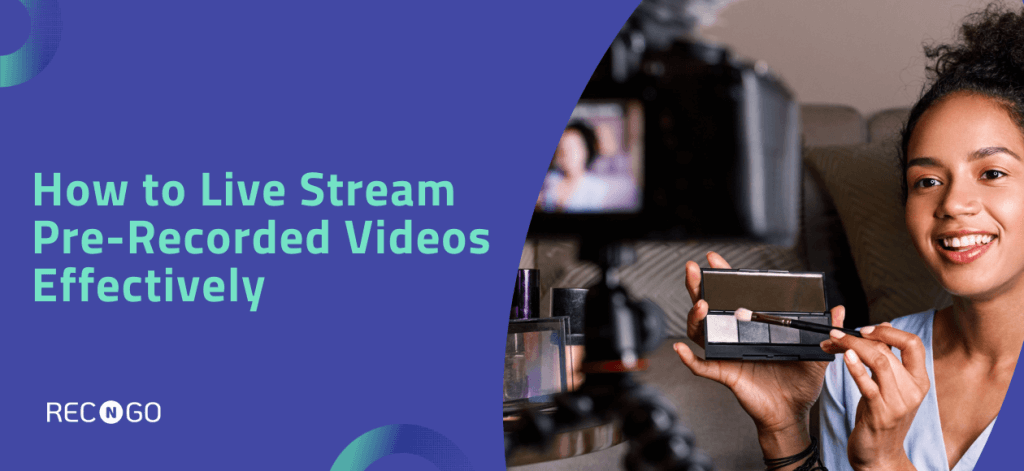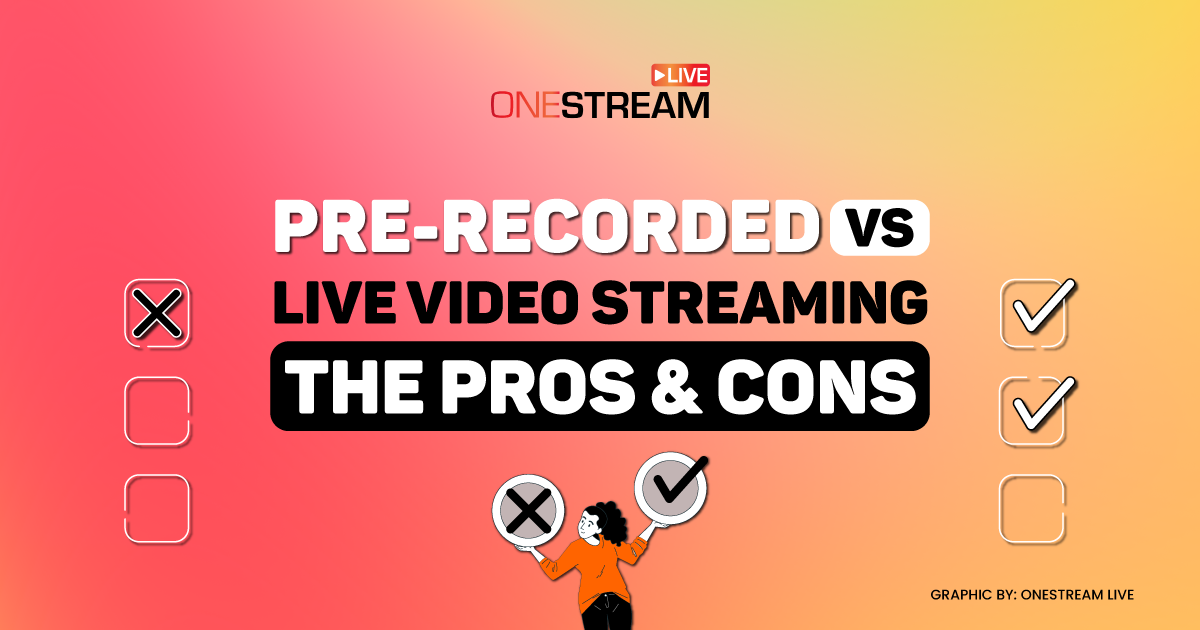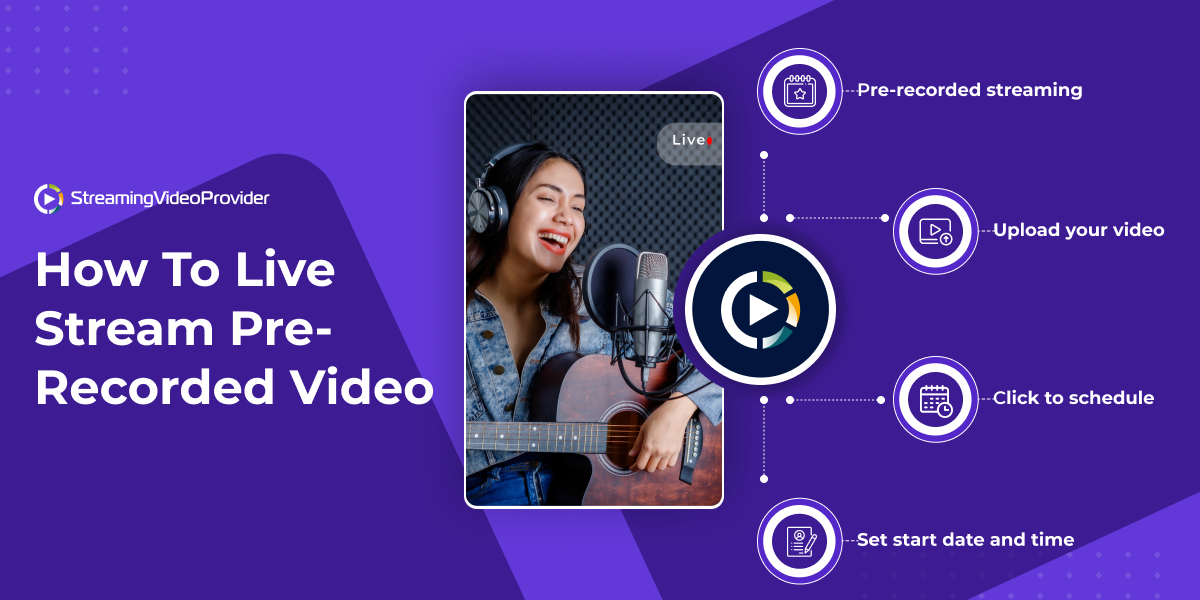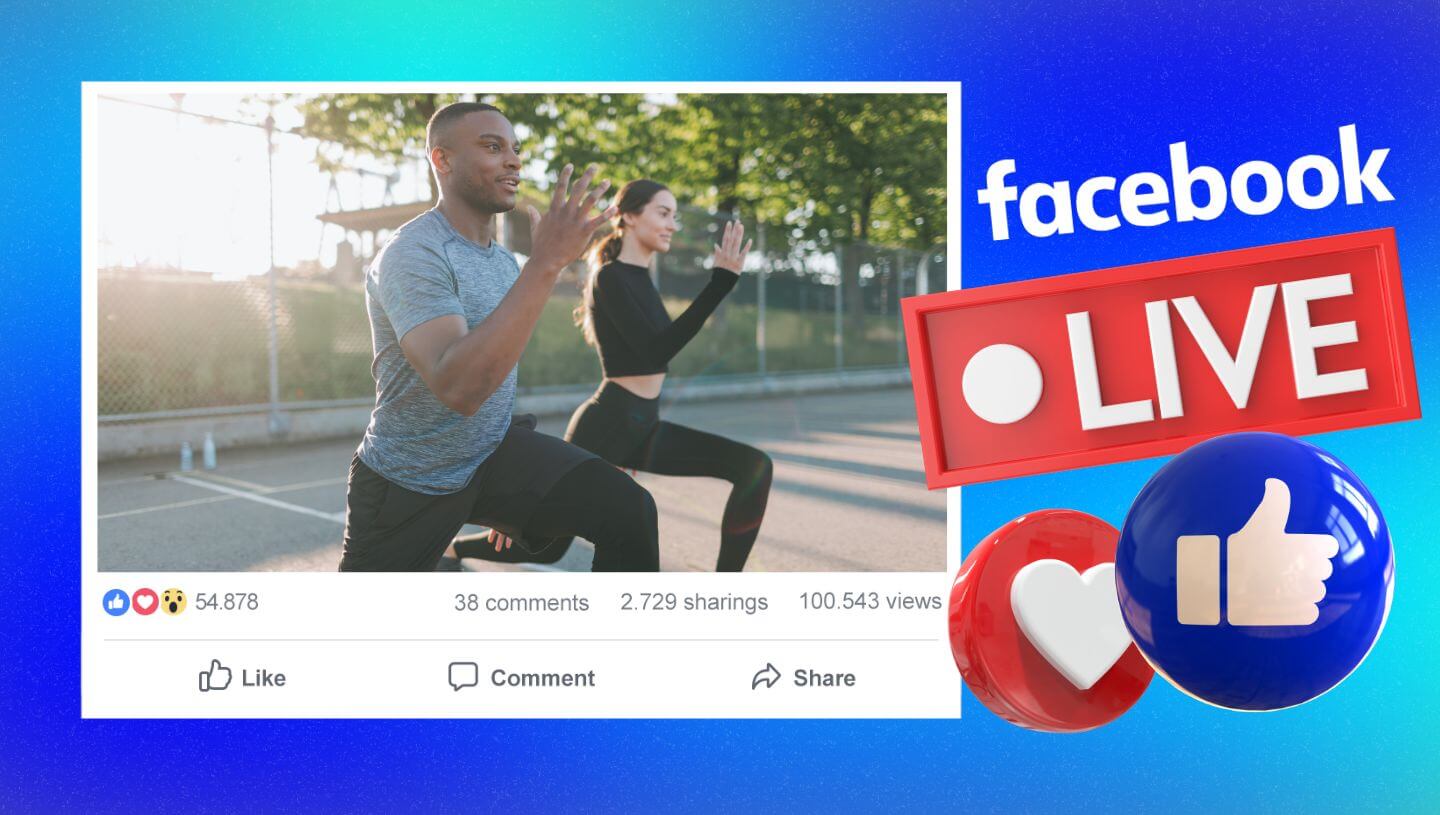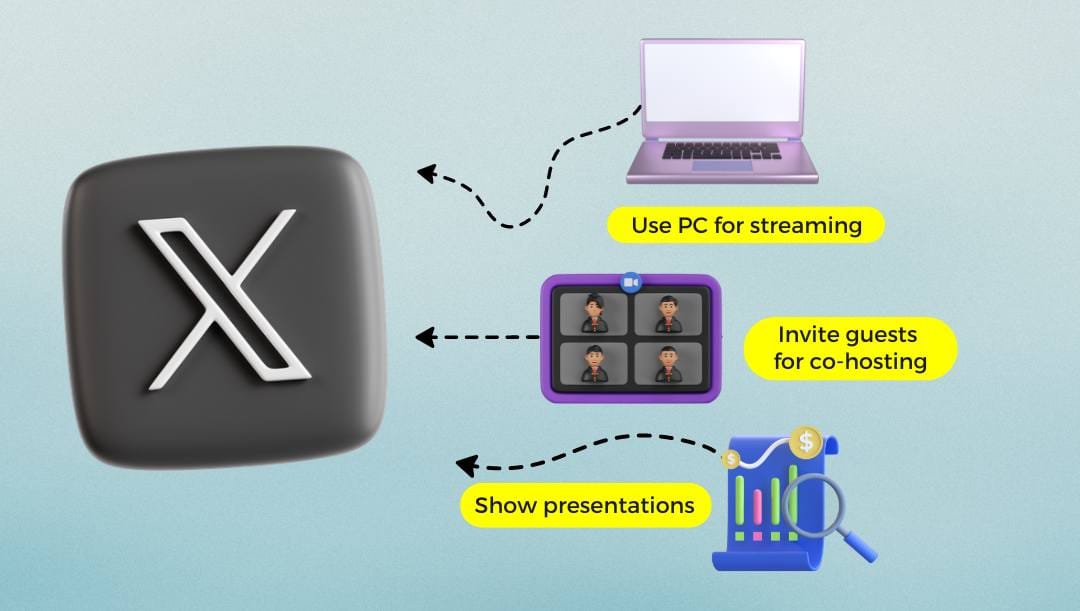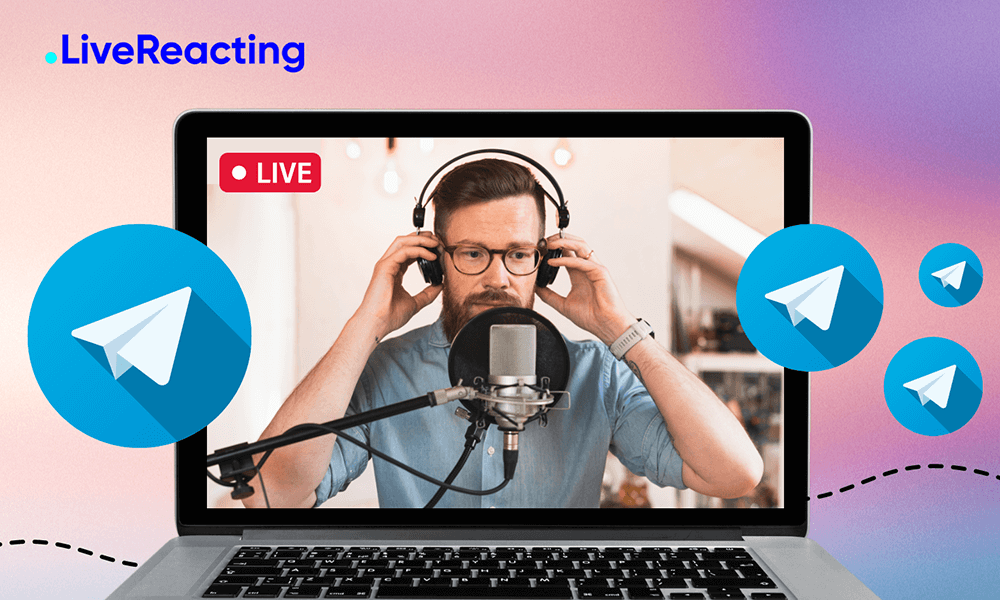How To Go Live With A Pre Recorded Video
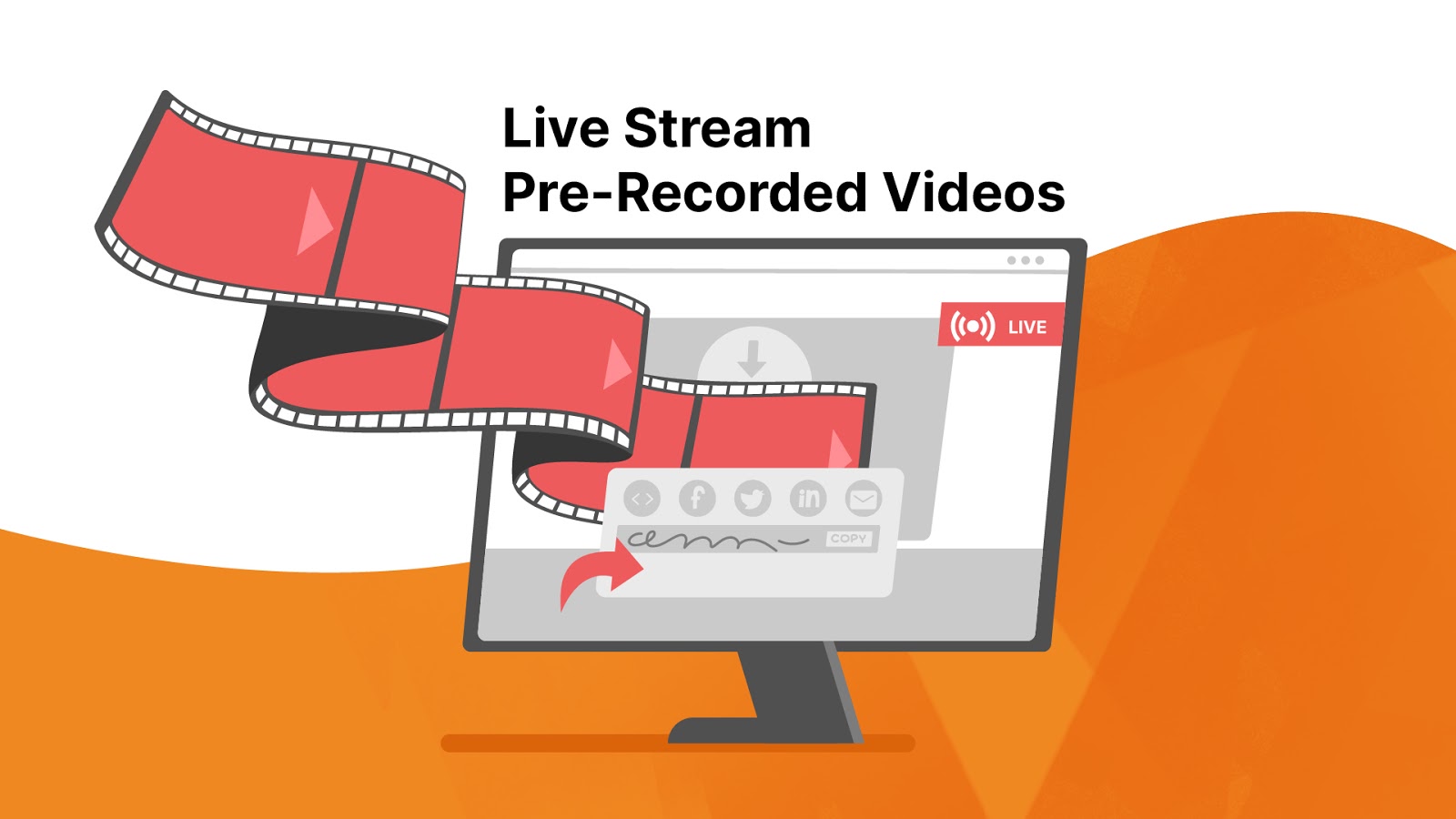
Want to boost your engagement without the stress of live performance? Learn how to simulate a live broadcast with pre-recorded video, allowing for audience interaction and a polished presentation.
This guide breaks down the essential steps to successfully stream a pre-recorded video as if it were truly live, maximizing viewer engagement and minimizing technical hiccups.
Prepare Your Pre-Recorded Video
First, ensure your video is high-quality. Edit your video meticulously. This includes audio balancing, visual clarity, and seamless transitions.
Consider adding a live intro and outro. This can create a more authentic feel. Incorporate call to actions!
Optimize the video for your chosen platform. The dimensions and format have to be according to the platform's requirements.
Choose Your Streaming Platform
Several platforms offer the functionality to stream pre-recorded content as live. YouTube Live, Facebook Live, and third-party services like Restream are popular choices.
Check the specific instructions for each platform. Each platform is different.
Restream, for example, allows you to upload your video and schedule it as a live event. Other platforms may require third-party streaming software.
Use Streaming Software
Software like OBS Studio (free and open-source) is crucial for many platforms. It enables you to control the broadcast and add overlays. OBS Studio is key here.
Configure OBS to capture your pre-recorded video file as a source. Select Media Source. Input the video file.
Set up your audio inputs if you plan to provide live commentary. Test your audio setup before the scheduled live event.
Schedule Your Live Stream
On your chosen platform, schedule the live stream in advance. Give your stream a compelling title and description. Use relevant keywords to attract viewers.
Promote your upcoming live stream on social media. Encourage viewers to engage by asking questions in the comments.
Set a reminder for yourself to start the stream at the scheduled time. Be ready to address technical issues. Have someone dedicated to answering the comments during the "live" playback.
Go Live and Engage
At the scheduled time, start the stream through your streaming software. Monitor the stream closely during the broadcast.
React to comments and questions in real time to create a sense of community. Assign someone to moderate your comments.
Acknowledge viewers by name and address their questions directly. The purpose is for them to feel that it's a real live event. Try to give the "live" vibe.
Post-Stream Analysis
After the stream ends, analyze the viewership data to improve future broadcasts. Pay attention to metrics like peak viewers, average watch time, and engagement rate.
Respond to any remaining comments or questions. Share highlights from the stream on social media.
Use feedback to refine your content and presentation style. Continuous improvement is essential to achieve the best results.
Ongoing Developments
Streaming platforms continuously update their features and functionalities. Stay updated with the latest changes and best practices.
Experiment with different techniques to enhance the viewer experience. Stay up-to-date with the latest software updates.
Mastering the art of simulating a live stream with pre-recorded video can significantly elevate your online presence. You will create a high quality content. So, take these steps today.
